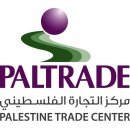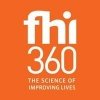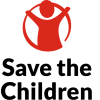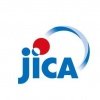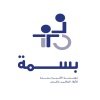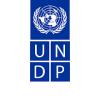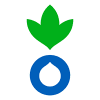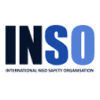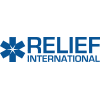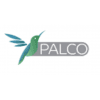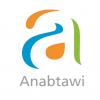Consultancy Assignment to Conduct a Gender Audit
Terms of Reference – Local Consultancy assignment/Service
RFP#PTC-058-2017
Consultancy Assignment to Conduct a Gender Audit
“Improving Palestinian small-scale producers access to and power in high value fruit and small ruminants value chains” – AMENCA3
Overview
Palestine Trade Center (PalTrade) was established in 1998 as a non-profit, membership based organization to “lead the development of Palestinian trade as a driving force for sustainable national economic growth”. Over the last 17 years PalTrade, as the mandated National Trade Promotion Organization, and more recently has shifted their focus to export trade promotion in the areas of export development and information, export promotion, and export policy and advocacy working closely with to wider export trade support and national partner network, Ministry of National Economy (MONE), international donor agencies and the international trade support network to deliver a positive impact on Palestinian trade performance.
Project Background
This consultancy will done under Economic justice programme mainly under two projects which is SIDA and AMENCA , below the background and summary of the two projects .
Through a strategic partnership with the Swedish International Development Cooperation Agency (SIDA), Oxfam launched “the equitable agricultural production and market systems for resilient economic development in the occupied Palestinian territory (oPt)” in November 2015. The overall goal of the project is for incomes of poor households to sustainably increase through enhanced employment and income opportunities. In partnership with key market players, the project will help to unlock the fresh produce sub-sector’s potential benefits for small-scale women and men farmers, through four inter-related strategies: (1) Catalysing farmers’ cooperatives and groups to benefit from joint action, including with private sector, towards enhanced capture of market benefits; (2) Facilitating investment opportunities and market linkages to diversify trade channels of smallholder farmers to domestic, regional, and international fresh produce markets; (3) Improving regulatory and institutional framework to ensure more favourable conditions for small-scale farmers; and (4) Systematically addressing cross-cutting issues in market facilitation approaches, including approaches to promote gender equity, good governance, and increased resilience of small-scale farmers to climate variability and change.
Based on an extensive and participatory value chain selection processes six commodity value chains (VCs) were identified: (i.) cucumber and (ii) potatoes (vegetable sub-sector), (iii) grapes and (iv.) olive (fruit sub-sector), (v.) small ruminants (livestock sub-sector), and (vi.) traditional food processing (women‘s economic empowerment component).
While the project “Improving Palestinian small-scale producers access to and power in high value fruit and small ruminants value chains” funded by the Australian Government, aims to improve the access and strengthening of small Palestinian producers within the Value Chain of High Value Fruit and Small Ruminants (AMENCA3), which will improve the performance of agricultural markets for farmers and producers throughout the West Bank and Gaza Strip and empowering women and youth socially and economically Through creating working environment in selected value chains committed to gender equity and Inclusion Strategy and provide equitable employment opportunities in cooperation with private sector institutions and companies.
The project will contribute to improve the performance of agricultural production and food processing to be more equitable to producers and more flexible and ready for markets, which will increase the production, quality, profitability and competitiveness of fruit, fresh vegetables and women's products by activating the participation of women and men in value chains targeted to be more sustainable and profitable.
The overall objective of this program is to contribute to resilient and equitable agricultural growth from which small-scale women and men producers will benefit in the oPt. The specific objective is to increase the wellbeing and income of women and men engaged in small-scale agriculture in vulnerable communities through improved agricultural and market systems in the West Bank, including East Jerusalem, and the Gaza Strip.
In the implementation phase, Oxfam in partnership with PARC, RWDS, ESDC, PLDC and MAAN the program can engage with to facilitate market systems improvements through addressing constraints at the levels of farm production, market demand, market support functions and services, and operating environment.
Part of this assignment working with companies/cooperatives in different locations in both the West Bank and Gaza Strip and assess the level of women engagement within the different activities conducted by the companies and cooperatives in Palestine. The project intends to conduct a gender audit to understand the engagement levels and any gaps or inequalities practiced towards women participation.
Objective and Expected Results:
The Gender Advisor will work with ten of the Palestinian pioneering private companies, including those targeted under AMENCA and SIDA project, to create a model for gender-sensitive business in the Palestinian context. This will include analyze their gender sensitivity policies, business ethos, structure, and various operations from a gender perspective, and identify opportunities for bridging gender gaps and promoting women‘s empowerment in their business operations, gender imbalance present in their structures and operations.
The number of companies working under the project is ten companies, each working with different farmers and cooperatives all of which working in the Agro-food sector and are located in different locations in the West Bank and Gaza Strip.
Part of the assignment the Gender Advisor should examine the companies’ activities and internal environment from a gender perspective and identify strengths and weakness in promoting gender equality issues.
more specifically the objectives are:
- Examine to what extent a company is having gender sensitive business through assessing internal structure and the working environment ( ex. availability of gender friendly policies integration in the working environment, examine HR policies,,,etc).
- Examine the extent to which the companies operations, including human resources, recruitment, culture, working environment , products and services and payment gap t, etc.. are gender-sensitive;
- Examine the staff gender balance at different levels of the companies and the decision making;
- Assess the level of resources allocated and spent on gender mainstreaming and gender activities;
- Identify and share information on mechanisms, practices and attitudes that will make a positive contribution to create gender sensitive companies;
- Set up the initial baseline score of performance on gender mainstreaming by the companies with a view to introducing an ongoing process of benchmarking to measure progress in promoting gender equality.
Time Frame and Deliverables
Specific deliverables:
- Ten reports per participating project’s companies, including but not limited to the following;
- Consideration of the internal practices and related support system for gender mainstreaming are effective and re-inforce each other and whether they are being followed;
- Monitor and assess if there is any progress made in gender mainstreaming by the companies in the past;
- Establish a baseline for number of workers and their gender type and policies and practices adopted by the companies;
- Identify critical gaps and challenges relating to gender mainstreaming and sensitivity;
- Recommend ways of addressing the gaps and suggest new ways and more effective strategy;
- Document good practices and develop an action plan per company towards the achievement of gender equality.
Time Frame
The time frame to complete the ten reports for all ten companies is 5 weeks.
Reporting
The reports are to be delivered to PalTrade in open source (i.e. Microsoft word and excel) and PDF format.
Technical and financial offer should include:
- list of relevant experience in the same field and supported by sample of previous gender audit
- The consultant needs to be certified to conduct a gender audit.
- Work Methodology
- Clear Description of the report (outline proposal) with time frame
- CVs of consultant
- Contacts of at least 3 references.
- Proposed action plan.
- Detailed financial budget with breakdown of cost.
General Terms and Conditions
- Assignment is open to all consultancy companies/ Individuals.
- Prices must be provided in US Dollars.
- The evaluation for offers provided by each company / or individual will be based on both technical and financial bases.
- Companies/consultants are requested to provide the company registration, VAT at deduction source (Local consultants). / Individual consultants are requested to include their full details, CVs, and copy of their ID.
- Submitted offers should be valid for 60 days from the final date of submitting the offers.
- Prices should take into consideration the local Palestinian taxation law.
DURATION
The assignment is expected to commence on 23/9/2018 and completed on 30/10/2018. The duration of the assignment is to be performed in 33 working days.
Application process
Send a cover letter responding to the Terms of Reference that includes company profile/CV, full technical proposal including a proposed work plan, and a financial proposal (quotation), Proposals should be submitted by sailed envelope at PalTrade office by COB Sunday 23th of September 2018 at 02:00 PM as maximum.




